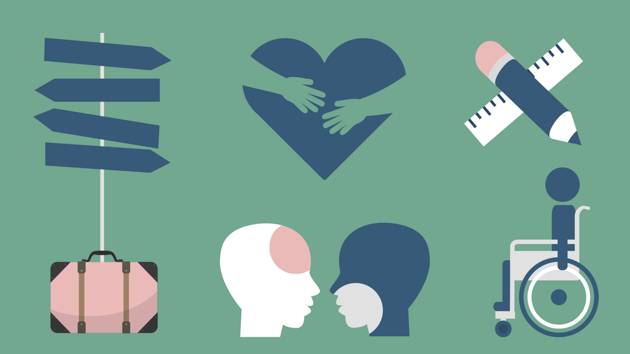What does it mean to study abroad as an exchange student?
Studying as an exchange student means that Umeå University has agreed with partner universities abroad to ‘exchange students’ with each other. As an exchange student, you study courses on site at one of our partner universities.
When you have completed your exchange studies, you can then apply for credit transfer - meaning what you have learned abroad is included in the education that you are studying in Umeå. This way, your studies at the partner university will be free of charge and your total period of study will not be longer than in a normal study programme.
What is the difference between studying abroad as an exchange student and on your own?
Studying as an exchange student means participating in an organised programme where your university has an agreement with another university abroad. This often means that you will receive support with the application process, course selection and accommodation. In addition, you will not pay any tuition fees to the foreign university.
If you decide to study abroad on your own, you will be responsible for finding and applying to a foreign institution, organising accommodation and handling all administrative tasks. This may give you more freedom, but it also means more responsibility and higher costs.
What support can you get as an exchange student?
As an exchange student, you will often receive support from both the university at home and in the host country. This can include:
- Academic counselling: help with selecting courses that are suitable for your degree programme and ensuring that they can be credited at your home institution.
- Language support: Opportunities to attend language courses or get help with language learning.
- Accommodation: Support in finding and organising accommodation, either on campus or nearby.
- Social support: Access to student organisations and activities to help you integrate and make new friends.
- Practical help: Advice and assistance with visa applications, insurance and other practical matters.
What courses can you study?
When studying as an exchange student, there may be restrictions on the courses you can choose to study. As exchange programmes are based on agreements between institutions, course offerings may be limited to specific subject areas or levels. This means that you may not have the same freedom of choice as if you were studying abroad on your own, where you can freely choose from all the courses available at the foreign institution.
Contact your study advisor or international contact person to find out which courses you should take abroad in order to fit them into your programme in terms of subject and level of study.
To find out if there are any restrictions regarding courses at the university you are interested in, contact your department's international contact person.
If you are interested in a university where there is a university-wide exchange agreement, information on restrictions can be found on the respective university's page in the Solemove database.
Studying as an exchange student can be a great opportunity to grow both academically and personally. With the support you get, you can make the most of your time abroad and create memories for life.



